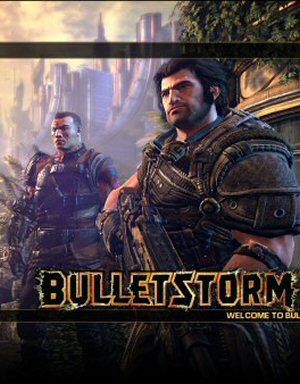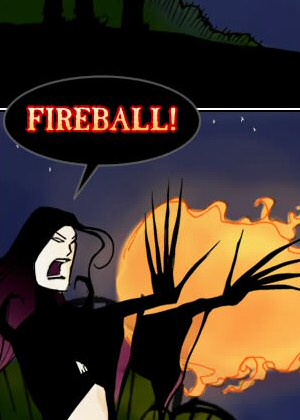Shawn Says:
Oooh hey, both Shamus and I forgot to post some bonus commentary before this one went live. *whistles innocently* I think I’ll just spend my time creating proper commentary on Wednesday’s comic.
Juvenile and Proud

Yes, this game is loud, crude, childish, and stupid. But it it knows what it wants to be and nails it. And that's admirable.
If Star Wars Was Made in 2006?

Imagine if the original Star Wars hadn't appeared in the 1970's, but instead was pitched to studios in 2006. How would that turn out?
The Terrible New Thing

Fidget spinners are ruining education! We need to... oh, never mind the fad is over. This is not the first time we've had a dumb moral panic.
Chainmail Bikini

A horrible, railroading, stupid, contrived, and painfully ill-conceived roleplaying campaign. All in good fun.
A Telltale Autopsy

What lessons can we learn from the abrupt demise of this once-impressive games studio?
 T w e n t y S i d e d
T w e n t y S i d e d

Ah, the classic Roleplay System Arms Race.
First the DM makes a monster that challenges the players.
One of the players doesn’t like to be challenged, makes a character that can handle the monster.
DM has to up the stakes.
Player has to respond with better power playing.
Rinse and repeat.
Are the DM and the plyer enjoying themselves? I’m not sure, but they’re sure putting a lot of effort in and it’s kind of distracting from the rest of the game…
It was part of what killed my interest in the LRP system I used to go to. A couple of players were very good power players and others weren’t. So a monster tough enough to threaten Player A’s character (i.e actually get through all the damage resistances and HP) could – and did – kill player B’s character in one blow ‘cos he just got bored of fighting player A.
The best part? GM’s attitude: ‘It’s your fault, be better at the game.’
“First the DM makes a monster that challenges the players.
One of the players doesn’t like to be challenged, makes a character that can handle the monster.
DM has to up the stakes.
Player has to respond with better power playing.
Rinse and repeat”
Which is why as a GM I never up the stakes, I change the stakes. Become the best-of-the-best-of-the-best-of-the-best at killing monsters? Killing monsters stops being important. Now it’s about political advancement…
/dusts hands off knowing his work here is done…
Also, it can be SOOOOOO much fun to hand out consequences.
\What was that, player? You just massacred the ancient beast guarding the portal to the netherworld and looted its treasure. Oh well, guess the damned are rising all over the world now!
Oh, you slaughtered the priests of the God of Darkness and Secrets and robbed his temple? Well, not only will you get a lovely personalized blood curse from each one as a parting gift, but he’s decided to communicate your names, abilities, and a list of your magic items to every villain in the realm (and possibly beyond). How does he know all that? Well, it’s a really bad idea to piss off the deity who commands all secret knowledge, eh.
Oh, you now destroyed the god of raw chaotic power in order to level up again? Fantastic! Say, you wouldn’t be taking charge of managing the world’s storms, probabilities, social breakdown, and much more would you? (I didn’t think so…)
These aren’t punishments so much as ways to spin off new adventures that the characters can’t just punch their way out of. They caused the problem, now they have to figure out a way of dealing with the fallout. It should never be impossible, but they may have to find a new Guardian Beast, find a way to appease a very upset deity, or take on roles as epic, semi-divine champions to keep the world stable. Or they might come up with something completely different. It’s a nice way of building continuity and pulling the heroes together to continue their adventures while also having a chance to let them drive the plot a bit.
Try high level 4th edition. I’m a pretty technical person and usually have a very good handle on mechanics, but once the characters reached 15+ level there was virtually no end to the crazy stuff they could pull.
Not that it was really a problem – it meant I couldn’t judge fights well enough to tailor opponents exactly to their strengths, but I could make up very strong and unusual encounters while still being reasonably sure that the party would come up with some interesting ways of winning…
That sounds like a people problem to be honest.
Well, yes. It is.
Any rules system is going to be run by people, with all their human foibles. Some people who know each other well can and do run rules-free games, or homebrew games, or whatever.
In the LRP system example, after a couple of abrupt player deaths, the issue was raised: the system as is allows [the equivalent of a Lvl 20 character with top-tier equipment] to play alongside [a Lvl 1 character with basic starting gear]. Should we change that?
And the GM’s consistent response was to blame the players who died – should have dodged, should have played someone else, should have written a better character etc, because it was easier than blaming the system that he’d written.
Isn’t Deuse Baaj here as well? Doesn’t that mean they could end the campaign in the first village?
The Big Bad is wherever the GM want’s him to be, depending on how quickly they want to end the campaign.
General Femur? Do you find this encounter… humerus?
Tibia honest, I can’t patella.
It was just a little good-natured ribbing, I don’t actually have a bone to pick.
I recently had a talk with the players in my campaign on this subject. They actually asked to be a little bit more powerful (mostly improving their action economy) on the grounds that everyone being stronger means that I have more leeway to make dynamic and threatening encounters. I was a little hesitant at first, but I have to admit, it’s worked out pretty well so far.
Actually, this is something I’ve thought about on a large scale. I “thought-designed” a game* in totality from a mechanics standpoint with a 60-80% story coverage. Of all the traditional systems I’ve encountered, played and modified, (be that AD&D, D&DX, various computer RPGs and their adaptations of the prior systems) I actually never really understood the appeal of levelling outside of “the numbers go bigger” mentality….
Seriously, if you think about it, the reward is always to deal with any situation with more elaborate and creative tools… even in such instances as D&D 5E where you are required to swap out your daily and encounter powers as you level up (for the most part). So why do we have systems that increase both player and enemy hitpoints? These systems, IMO, tend to generate and impose enemies that are hit-sponges as well as being talent mages. On the other hand – the system I devised was “level agnostic”. Sure, it’s an entirely unproven system so I can understand all criticisms but you know, one of the most fun times I had playing Oblivion was when I refused to sleep and thus did not ever level up….
Why is is that players (and enemies) can only have a certain number of slots instead of a certain number of hitpoints? It means that abilities of higher slots must inevitably do higher “damage” or “effect” in whatever form that may be. In actuality, it’s more interesting to provide the player and DM with abilities which are fair but relatively powerless whislt being at a low health level. Again, IMO… I’ve never DM’ed so maybe there’s something going on I’m not understanding…
* As in I planned it out wihtout any way of being able to make it.
” even in such instances as D&D 5E where you are required to swap out your daily and encounter powers as you level up”
Wasn’t that 4E? 5E just gives you more abilities in addition to the old ones.
“So why do we have systems that increase both player and enemy hitpoints?”
(1) To give a sense of progress (illusory or otherwise). “I used to have a 12 and now I have a 78! That makes me awesome!”
(2) To indicate relative power levels within the world. “This dragon can easily bully these trolls into working for him. You can fight the trolls but for now you don’t dare fight the dragon.”
(3) To reduce the chance of sudden death for a high-level character that has become an important part of the narrative.
Hmmm. I wonder if a comic strip where the writer and artist have no idea about any roleplaying game rules would succeed in a space where people basically couldn’t question them over their decisions/jokes…. (technically, this is a discussion from the last strip but, as a non-roleplaying game nerd I decided to put it as a comment to *THIS* strip…. so sue me! :) )